# Lecture 10 - Game Engines and ECM ### SET09121 - Games Engineering <br /><br /> Kevin Chalmers and Sam Serrels School of Computing. Edinburgh Napier University --- # Requirements of a Game --- # What does a game need? From a Programmers point of view: - **Content** - 3d Models, Shaders, Textures, Text, Fonts, Music, Video, Saves, levels/gamestate. <!-- .element: class="fragment" --> - **Processing & io** - Rendering, User input, Networking, Audio, loading/unloading/streaming <!-- .element: class="fragment" --> - **Logic and Mechanics** - Physics, AI, Gameplay rules. <!-- .element: class="fragment" --> Question: When does a game need any of the above? <!-- .element: class="fragment" --> - **A: Right Now (and without warning)** <!-- .element: class="fragment" --> --- # Game Engine Architecture --- # Complexity <a href="assets/images/2d_engine_architecture.png">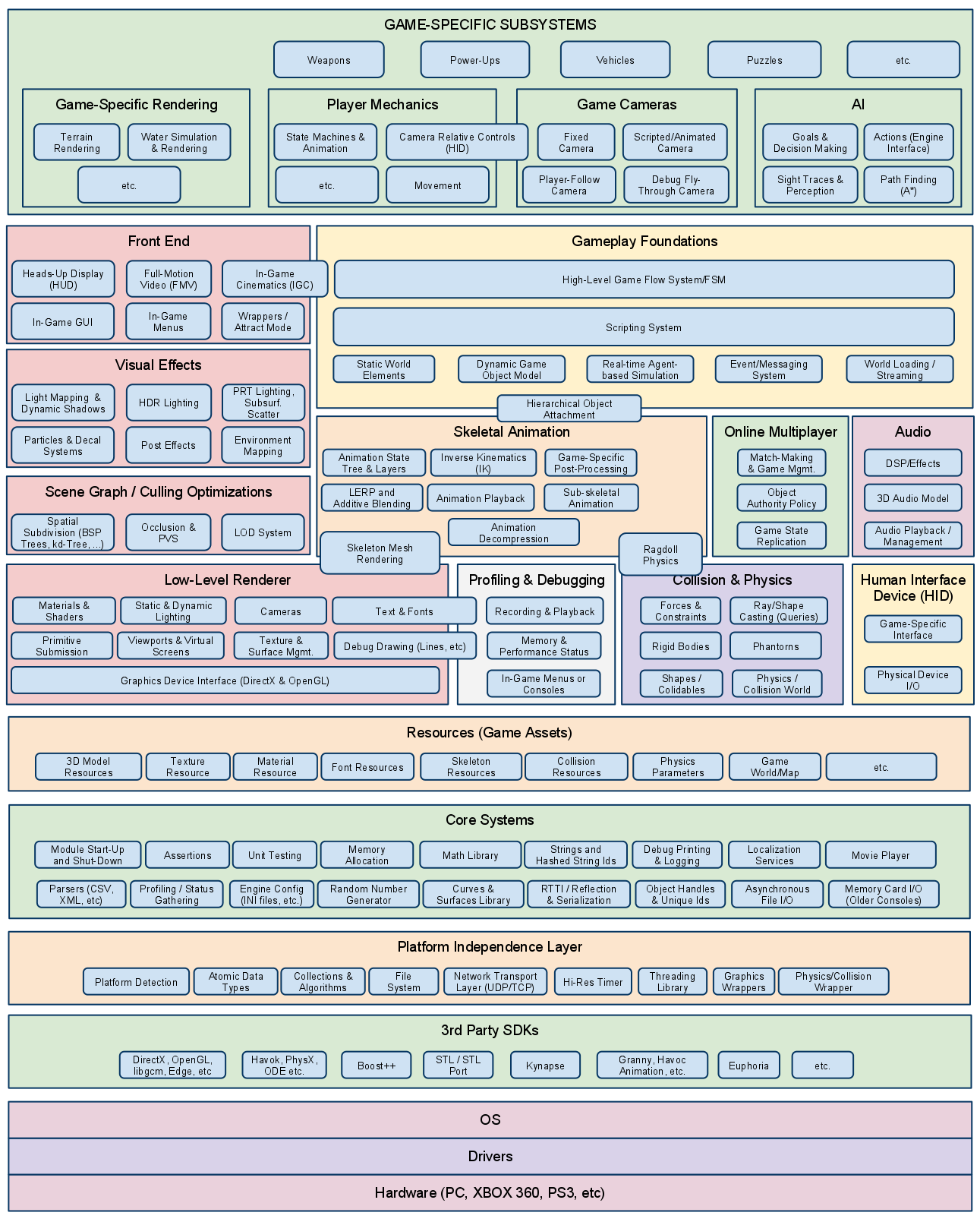</a> <!-- .element height="760px" --> --- # Combating the Complexity - Game Codebases Get Big Fast <!-- .element: class="fragment" --> - Taming and maintaing it tests your Ability as a Software Engineer <!-- .element: class="fragment" --> - We've covered some Software patterns that you can pull out of your toolbox to help.These help solve small isolated design problems. <!-- .element: class="fragment" --> - When it comes to pulling it all together as one giant moving thing, you need to think about the grand design of your Engine <!-- .element: class="fragment" --> - This means separating your gameplay logic from the Generic Engine logic. <!-- .element: class="fragment" --> --- # Build The Wall 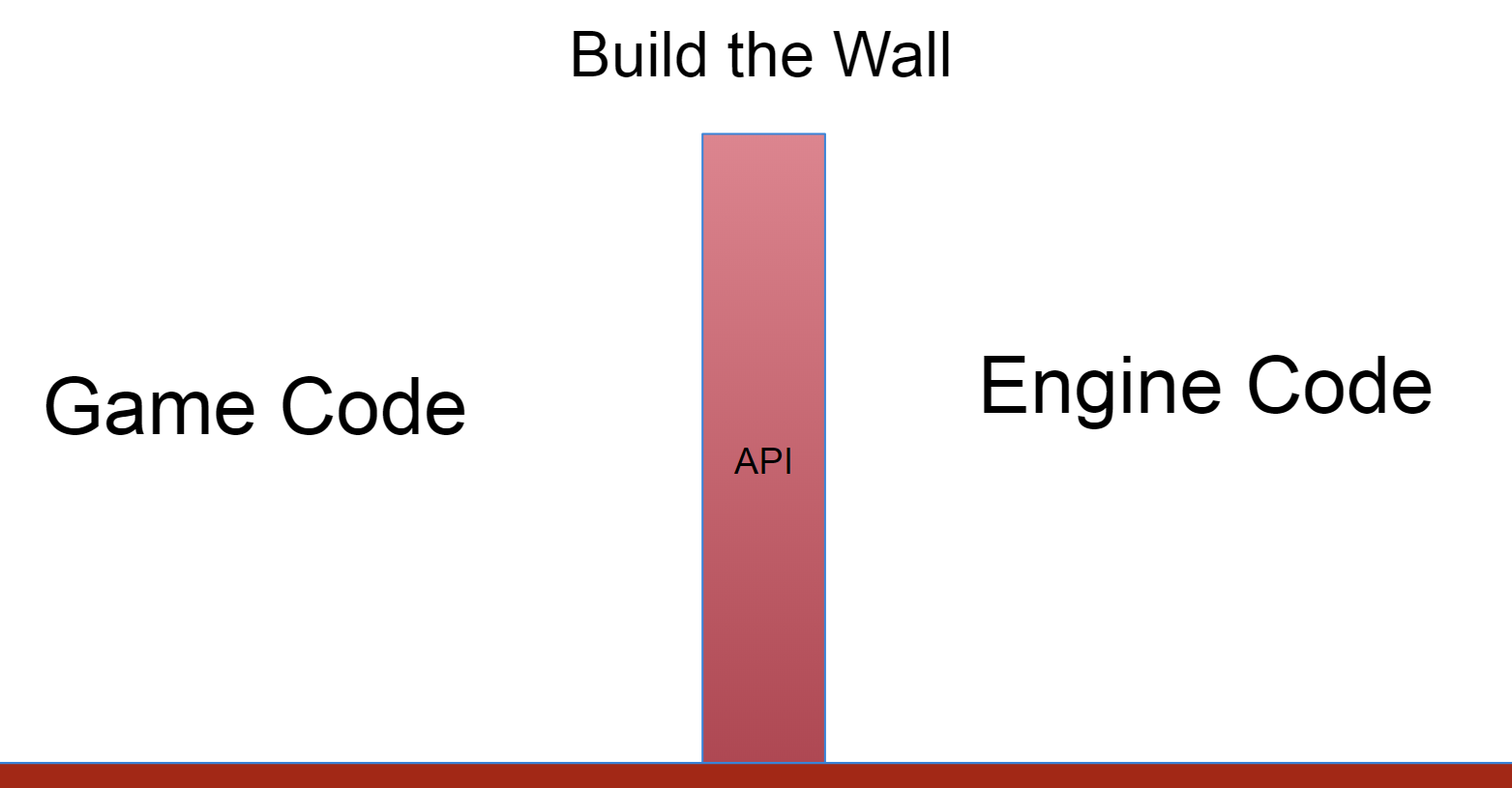 --- # Abstraction --- # Abstraction - And so we build Games Engines - But do we need them? - ...We didn't always have them. <!-- .element: class="fragment" --> Q: How complex do you think a game needs to before you think you need to sperate Engine Code? <!-- .element: class="fragment" --> - `¯\_(ツ)_/¯` <!-- .element: class="fragment" --> - A: Once your code gets abstract enough <!-- .element: class="fragment" --> - A: From the start <!-- .element: class="fragment" --> - A: Never, and write some crazy fast/bad code <!-- .element: class="fragment" --> Not all Games Need an 'engine' <!-- .element: class="fragment" --> - Some are simplistic enough to not need it. <!-- .element: class="fragment" --> - We already have an engine somewhat: SFML. <!-- .element: class="fragment" --> - This is already isolated from our code. But it doesn't do Everything we need. <!-- .element: class="fragment" --> --- # Build The Wall  --- # Software Abstraction techniques --- # Object Orientation. OO is Hammered into you since 1st year, as the solution to software complexity. 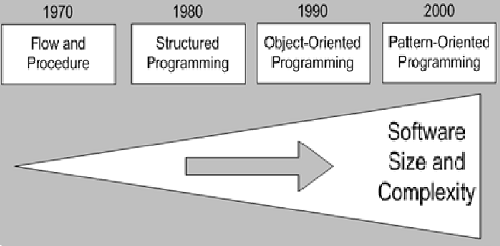 ... But it's not perfect. <!-- .element: class="fragment" --> Enter: The Evil Tree Problem <!-- .element: class="fragment" --> --- # Object Orientation & the Evil Tree 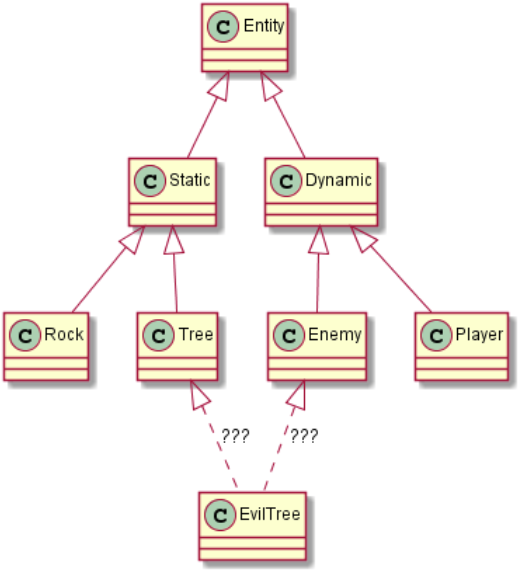 --- # Possible Evil Tree Solutions To Fix this We need either: - Multiple Inheritance (Which c++ doesn't have) <!-- .element: class="fragment" --> - Or Interfaces (Which c++ doesn't have) <!-- .element: class="fragment" --> C++ as a language doesn't have these natively, but it doesn't stop us from adding it ourselves. <!-- .element: class="fragment" --> --- # The Evil Tree Solutions The Entity Component Model 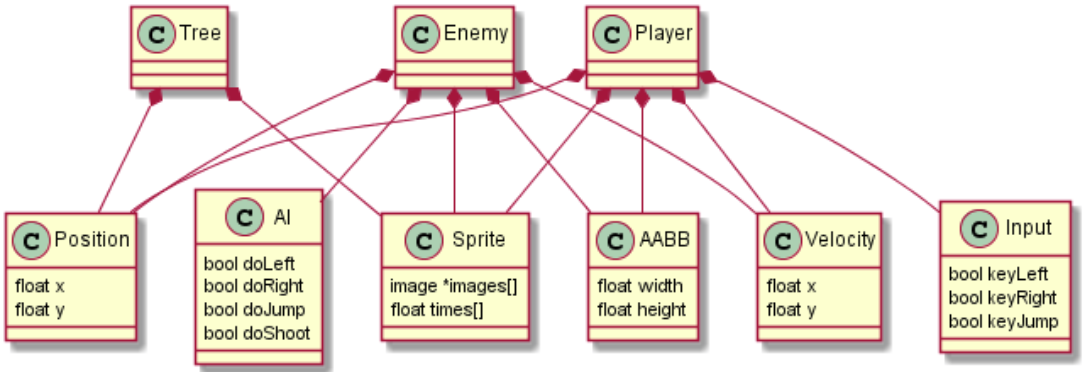 --- # ECM ECM enables Data Orientated design. 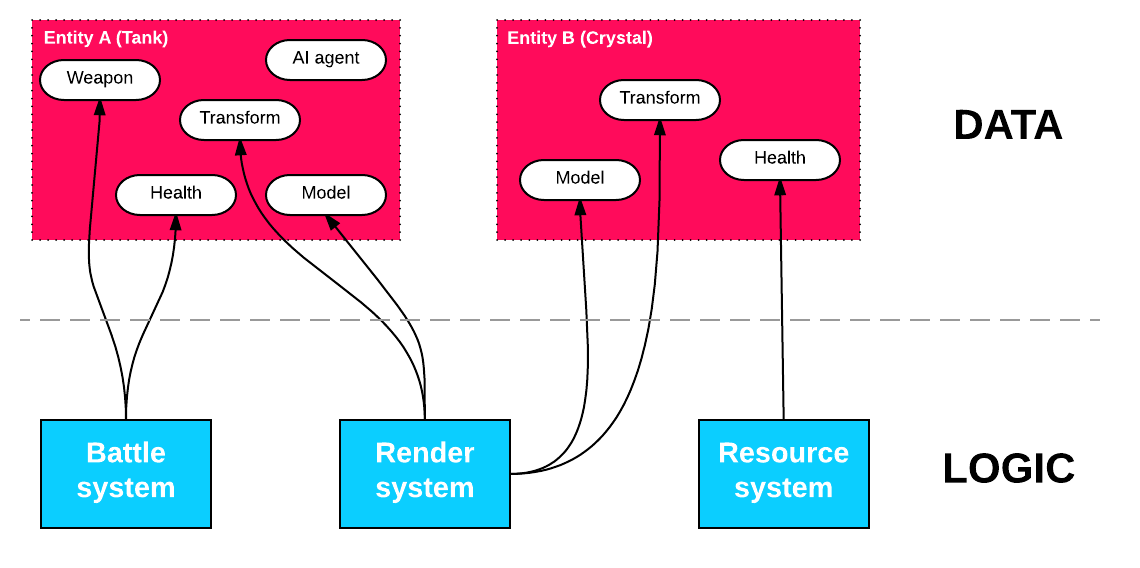 --- # ECM PseudoCode ```cpp class Entity { protected: List_of_components; public: update(delta_time); render(); addComponent(Component); getComponents(); removeComponent(Component); }; class Component { Entity* _parent; update(delta_time); render(); }; ``` --- # ECM Code ```cpp class Entity { protected: std::vector<std::shared_ptr<Component>> _components; public: virtual void update(double dt); virtual void render(); template <typename T, typename... Targs> std::shared_ptr<T> addComponent(Targs... params) template <typename T=""> const std::vector<std::shared_ptr<T>>& getComponents() const void removeComponent(std::shared_ptr<Component>); }; class Component { Entity* const _parent; virtual void update(double dt) = 0; virtual void render() = 0; }; ``` <!-- .element: class="stretch" --> --- # ECM Code ```cpp auto pl = make_shared<Entity>(); auto s = pl->addComponent<ShapeComponent>(); s->setShape<sf::CircleShape>(12.f); s->getShape().setFillColor(Color::Yellow); pl->addComponent<PlayerMovementComponent>(); // later on... pl->getComponents<PlayerMovementComponent>()[0]->setSpeed(150.f); ``` --- ## C++ TEMPLATES have arrived! `template <typename HELP="">!` --- # Why not just use classes? ```cpp class Component { }; class ShapeComponent : public Component{ } //no change class Entity { protected: std::vector<std::shared_ptr<Component>> _components; //No change public: //templated: std::shared_ptr<T> addComponent(Targs... params){} //Or no templates: Component* addComponent(Component*){} } ``` ```cpp auto pl = make_shared<Entity>(); ShapeComponent* sc = new ShapeComponent(); auto s = pl->addComponent<sc>(); // later on... //Uh oh pl->getComponents<PlayerMovementComponent>()[0]->setSpeed(150.f); //We would have to do something lik this: pl->getComponentsOftype(PlayerMovementComponent)[0]->setSpeed(150.f); //Not *So* bad, but how would that function work? ``` --- # ECM without templates ```cpp getComponentsOftype(ComponentType CT){ foreach(c in component){ attempt to cast C to CT; did it work? return C; } } ``` OR Save a static string in each component class and compare this way at runtime. Either way : Lots of Icky Code, and we have less functionality: No parameter passing, no constructing with one method. Templates give us more for less code. It's worth learning the weird syntax. --- # ECM template Deep Dive 1 ```cpp class Entity { template <typename T, typename... Targs> std::shared_ptr<T> addComponent(Targs... params) { static_assert(std::is_base_of<Component, T>::value, "T != component"); std::shared_ptr<T> sp(std::make_shared<T>(this, params...)); _components.push_back(sp); return sp; } } ``` --- # ECM template Deep Dive 2 ```cpp class Entity { //template <typename T, typename... Targs> std::shared_ptr<T> addComponent(Targs... params) { //static_assert(std::is_base_of<Component, T>::value, "T != component"); std::shared_ptr<T> sp(std::make_shared<T>(this, params...)); _components.push_back(sp); return sp; } } ``` ```cpp class Component { private: Entity*_parent public: Component(Entity* const p); } class PickupComponent : public Component { private: bool _isBig; public: PickupComponent() = delete; PickupComponent(Entity* p, bool big = false); } ``` <!-- .element: class="fragment" --> --- # ECM template Deep Dive 3 Replace T with PickupComponent ```cpp class Entity { std::shared_ptr<PickupComponent> addPickupComponent(bool big) { std::shared_ptr<PickupComponent> sp(std::make_shared<PickupComponent>(this,big)); _components.push_back(sp); return sp; } } ``` ```cpp class Component { private: Entity*_parent public: Component(Entity* const p); } class PickupComponent : public Component { private: bool _isBig; public: PickupComponent() = delete; PickupComponent(Entity* p, bool big = false); } ``` --- # ECM template Deep Dive 4 With Old Raw Pointers ```cpp class Entity { PickupComponent* addPickupComponent(bool big) { PickupComponent* sp new PickupComponent(this, big); _components.push_back(sp); return sp; } } ``` with New Safe Smart Pointers. ```cpp class Entity { std::shared_ptr<PickupComponent> addPickupComponent(bool big) { std::shared_ptr<PickupComponent> sp(std::make_shared<PickupComponent>(this,big)); _components.push_back(sp); return sp; } } ``` <!-- .element: class="fragment" --> </PickupComponent></PickupComponent></PickupComponent></PickupComponent></PickupComponent></PickupComponent></T></T></T></T></T></T></PlayerMovementComponent></sc></Entity></T></Component></typename></PlayerMovementComponent></PlayerMovementComponent></sf::CircleShape></ShapeComponent></Entity></Component></T></typename></T></Component>